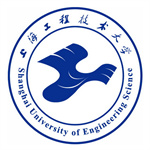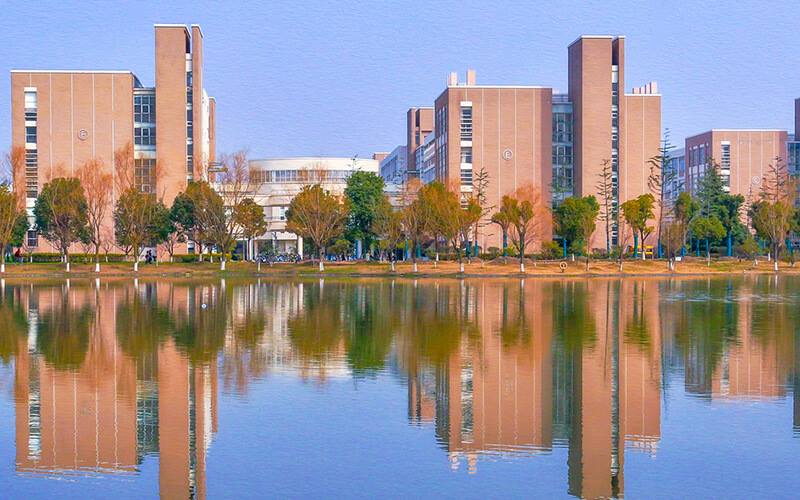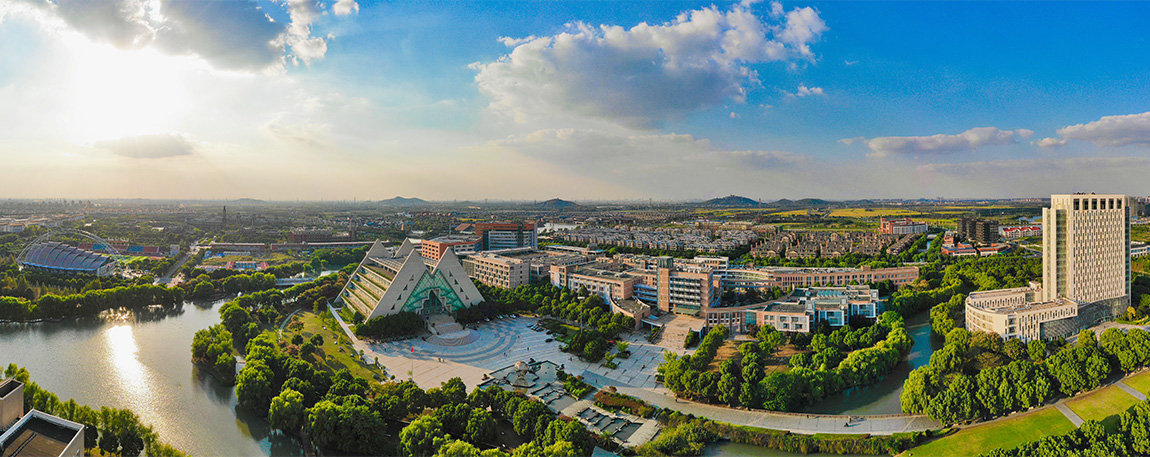
- Location:
- Search By School Name
- Details

Shanghai University Of Engineering Science
School profile
-
Location:
Shanghai, Shanghai
-
Population:
24000
-
Extent:
1476MU
Why choose Shanghai University Of Engineering Science ?
Shanghai University of Engineering Science (Shanghai University of Engineering Science) is a full-time university of higher education with a strong reputation in engineering, management, art, law, science, medicine, economics, literature and other disciplines. It is the first batch of pilot universities of the "Excellent Engineer Education and Training Program" of the Ministry of Education, the leading unit of new engineering construction in local universities across the country, and the pilot construction unit of "high-level local applied universities" in Shanghai. In 2017, it was listed as the project construction unit of Shanghai doctoral degree granting unit.
Shanghai University of Engineering and Technology was founded in 1978 as the Mechanical and Electrical Branch of Shanghai Jiaotong University (of which East China Institute of Chemical Engineering was incorporated into the Mechanical and Electrical Branch of Shanghai Jiaotong University in 1984) and the East China Textile Institute of Technology. In 1985, approved by the Ministry of Education, Shanghai University of Engineering and Technology was formally established on the basis of the Mechanical and Electrical Branch of Shanghai Jiaotong University and the Branch of East China Textile Institute of Technology. In 2003, with the approval of Shanghai Municipal People's Government, Shanghai Advanced Technical School (founded in 1951) was integrated into Shanghai University of Engineering Technology.
The university has campuses in Songjiang, Changning and Hongkou, covering an area of 1,476 mu, with a total construction area of 715,000 square meters, total fixed assets of about 3.226 billion yuan, and teaching and research equipment of about 1.043 billion yuan. School of Mechanical and Automotive Engineering, School of Electronic and Electrical Engineering, School of Management, School of Chemistry and Chemical Engineering, School of Materials Science and Engineering, School of Art and Design, School of International Creative Design, School of Air Transport (Flight School), School of Textile and Clothing, School of Urban Rail Transit, School of Mathematics and Statistics, School of Foreign Languages, School of Marxism, School of International Education, Continuing teaching Education College, higher vocational and technical college, physical education Department, engineering training center, general education center and other teaching institutions, with national experimental teaching demonstration center, national virtual simulation experimental teaching center and national university science Park.
At present, the university has 13 master's degree programs in first-level disciplines, 8 master's professional degree programs and 64 undergraduate majors. Mechanical engineering, Vehicle engineering, Computer science and technology, Information management and information systems, business administration, marketing, tourism management, Chemical Engineering and technology, pharmaceutical engineering, environmental engineering, product design, clothing design and engineering, transportation, a total of 13 majors were selected as the national first-class undergraduate major construction points; Automotive Service Engineering, Energy and Power Engineering, Electrical Engineering and its Automation, Radio and Television Engineering, Automation, Engineering Management, Labor and Social Security, Polymer Materials and Engineering, Material Forming and Control Engineering, Materials Science and Engineering, Visual Communication Design, Art and Technology, Traffic Management, Logistics Management, Flight Technology, Aircraft Manufacturing Engineering, Textile Engineering, Rail Transportation A total of 19 majors in communication and control and railway engineering were selected as Shanghai's first-class undergraduate major construction points; Pharmaceutical engineering, environmental engineering, transportation, Clothing design and Engineering, Chemical engineering and technology, Mechanical engineering, automation, computer science and technology, vehicle engineering, materials science and engineering, polymer materials and engineering 11 majors through the engineering education certification; Vehicle engineering, rail transit signal and control and railway engineering have passed the German ASIIN certification, and traffic management and aircraft manufacturing engineering have passed the American AABI certification.
The university is committed to deepening the reform of education and teaching and improving the quality of personnel training. Adhere to the purpose of relying on modern industrial education and serving economic and social development, guided by the needs of modern industrial development, the academic and professional groups connect the industrial chain and technology chain, and take the strategic alliance of production, education and research as a platform, and work with industries and enterprises to build a "three synergies" model of collaborative education, collaborative education and collaborative innovation. The industry-university cooperative education model of "work-study alternation" helps the school become a cradle for cultivating outstanding engineers and engineering service talents. There are nearly 24,000 full-time students in the university, including nearly 4400 postgraduate students. Graduates have significant competitive advantages in employment and are generally welcomed by employers. In 2022, under the impact of the epidemic, the employment rate will reach 96.44%, which will continue to be at the forefront of similar universities.
The school adheres to the discipline leadership and continues to enhance the core innovation of scientific research. The disciplines of engineering, materials science and chemistry rank among the top 1% of ESI worldwide; It has 1 Class III peak discipline in Shanghai, 1 Class IV peak discipline, 21 provincial disciplinary research platforms such as collaborative innovation center, R&D public service platform, engineering technology research center, and university think tank. Since 2016, the school has been approved as the first unit of 194 projects of the National Natural Science Foundation, including 1 key project of joint fund, and the major project of Science and Technology Innovation 2030 - "New generation of artificial Intelligence" by the Ministry of Science and Technology in 2020; In the first unit, 52 projects of the National Social Science Fund were approved, including 1 key project of the National Social Science Fund in 2021, and 1 major project of the National Social Science Fund in 2022 to study and interpret the spirit of the Sixth Plenary Session of the 19th CPC Central Committee; Has been approved the Ministry of Education philosophy and social science research major research project 1, the national education science planning key project of the Ministry of Education 1, the national art fund project 5, more than 500 projects at the provincial and ministerial level; Won 29 provincial and ministerial science and technology awards as the first unit, including 1 first prize; 13 provincial and ministerial level Zhe community awards, including 1 first prize; More than 3,500 patents have been authorized.
The school takes creating a high-quality and high-level talent team as the top priority. There are nearly 2,000 faculty members, including more than 1,500 teachers engaged in teaching and scientific research, and more than 60% of them have doctorates. There are 25 national talents of all kinds, including 4 academicians of the Chinese Academy of Engineering (including 2 dual-employed academicians). There are 120 provincial-level talents and talent projects approved, and 9 experts enjoy special government subsidies from The State Council.
Adhering to the concept of open education, the school actively introduces international high-quality education resources to help the school connotation construction and student training. At present, the university has established cooperative relations with more than 110 universities or institutions in more than 20 countries and regions such as the United States, Canada, Mexico, the United Kingdom, Germany, France, Italy, Sweden, Switzerland, South Korea, Japan, Singapore, Malaysia, Kazakhstan, and Pakistan. International College of Creative Design, an approved non-independent legal entity, has established Sino-Korean, Sino-French and Sino-Swiss cooperative programs, providing more than 110 overseas study exchange programs such as doctoral joint training, master's and undergraduate joint training, mutual credit recognition, graduation project, overseas internship, online courses, international industry-university cooperation, and international sister cities. A variety of overseas learning and exchange platforms have been created for students. The University actively serves the national "Belt and Road" strategy, actively carries out educational cooperation and exchanges with universities and colleges along the route, and receives international students from more than 70 countries and regions around the world every year to study for degrees, short-term exchanges and language training.
Take root in the Dadi University of China, train high-quality engineering applied talents who take on the great responsibility of national rejuvenation, and move forward confidently on the journey of building a first-class high-level modern engineering applied university with characteristics in China.
How to apply?
-
Step1
1Complete Application
Form Online -
Step2
2Upload Required Application
Documents -
Step3
3Pay Fees/Send to University -
Step4
4Track Admission Status




















